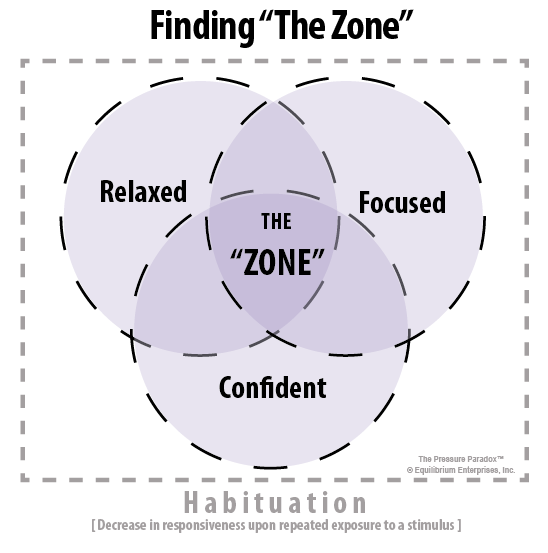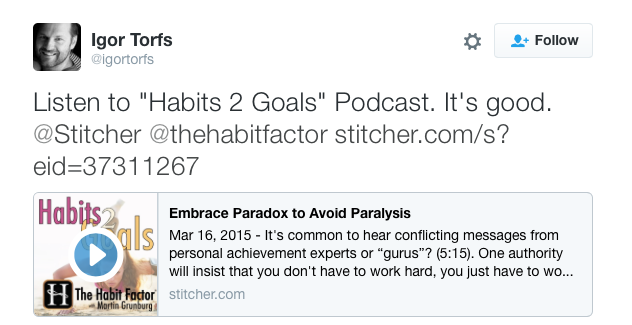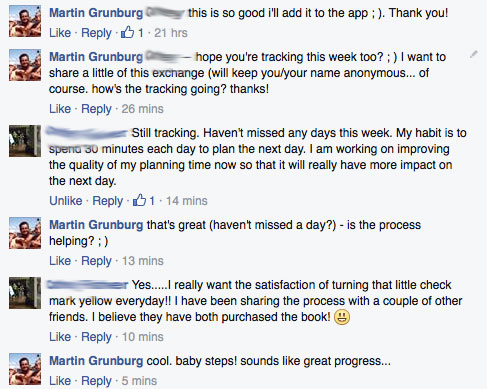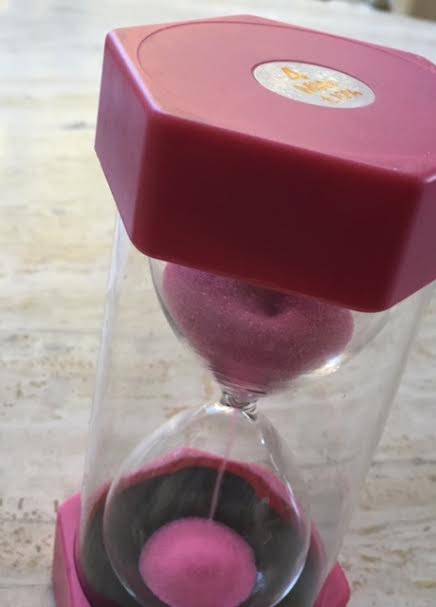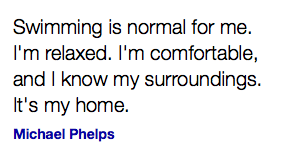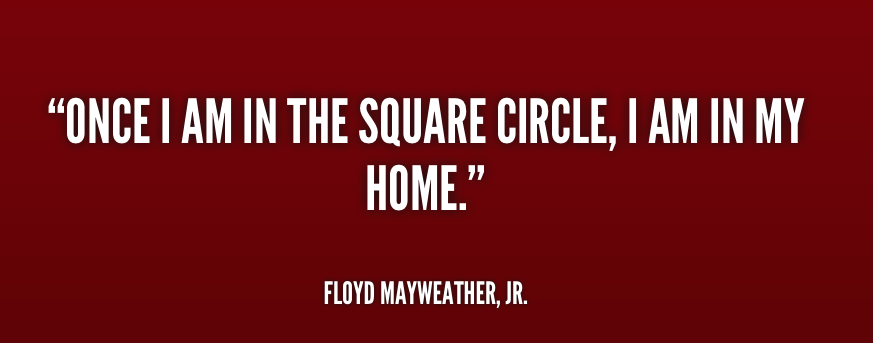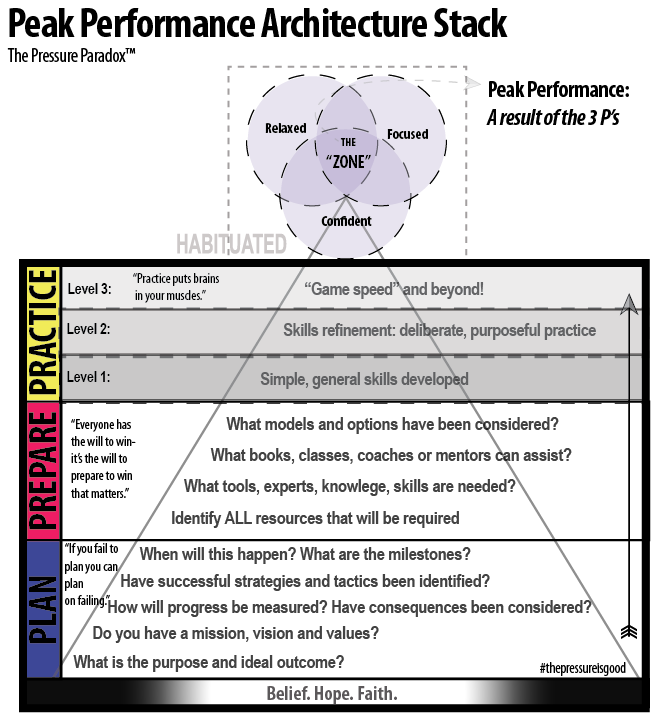By: Martin Grunburg
In the last article, we reviewed the path — the formula — that all great Olympians must follow to turn their dreams into reality. In fact, we recognized that this path toward success applies to anyone, whether an Olympian or just an average Joe.
However, becoming an Olympian doesn’t happen without being able to perform when it matters most.
If you’re like me, you may have noticed the excessive use of two “P” words that were repeated time and again during the Rio Olympics: Pressure and Preparation.
Pressure and Preparation. Pressure and Preparation. Pressure and Preparation.
There’s good reason you heard these words over and over again: They go together like peanut butter and jelly, Laurel and Hardy, Batman and Robin — you get the picture.
In fact, the greater the PRESSURE (the bigger the stage, the higher stakes), the greater the demand for preparation! This is an important point and it’s worth reiterating: The greater the pressure, the greater the preparation!
Consider the military — an environment with the highest of stakes — and how it is in a constant state of preparation, which leads to a constant state of readiness. The same can be said for first responders: police, fireman, paramedics, lifeguards, etc.
(I wrote about these topics extensively in The Pressure Paradox.)
Preparing Constantly
Before we get too deep into the concept of preparation, can we first agree that pressure is neither good nor bad, but a neutral, indifferent force?
Pressure has proven to propel the greatest athletes to Olympic and World Records, and at the same time we’ve witnessed it break performers, performances and create tremendous distress.
What’s the difference?
Why is it that some people (and athletes) shine under pressure and others wilt?
Well, aside from how an individual regards pressure (friend or foe, which matters a lot * see video link bottom), it would be hard to argue that the performance doesn’t come down to preparation.
The importance of preparation is what we mere mortals/average Joes can learn from Olympians’ exemplary performances under pressure.
When we recognize pressure for what it really is — a neutral force that can be harnessed to help us achieve goals — we can prepare better!
It helps greatly to understand the physics formula for pressure: Pressure = Force / Area.
To prepare means to make ready beforehand. Preparing requires a gathering of resources, which enhances the overall Area, which then diminishes the Force and, of course, residual pressure.
Preparing reduces pressure.
Let’s pretend you have to give a TED talk and you have only one week to prepare. Chances are good (unless you’re an expert) you will feel immense pressure.
Why? Because you have limited resources (time, expertise, knowledge, skills, etc.). Essentially, your Area is small and the Force (of the imminent event) is very powerful!
However, if I tell you that you now have two years to prepare and that you will be coached by five expert speakers along with a professional speech writer, what do you think will happen to the pressure you feel?
That’s correct: It immediately subsides. As your Area (skills, resources, time) is enhanced, it diminishes the force and related pressure you would feel.
To prepare also means that you know the ideal outcome; you’ve identified the best resources, tools, tips, and techniques, along with the personnel with experience achieving the goal or similar results. Preparing means learning, researching and studying and, in the case of the Olympian, you can bet, even reviewing film.
Preparing also means practicing at all three levels: low, moderate, and high/extra-high pressure.
What’s the Great Benefit of Preparation?
A perfect performance isn’t a single entity; it is a state comprised of the thousands of hours of preparation you have put in — a habituated state that fosters key characteristics of a “zone” or peak performance.
The first time the Beatles played a performance for a crowd, they were nervous. The 50,000th time they played before a stadium crowd they were on autopilot. They were habituated.
When Michael Phelps (more on him later) gets into the pool, he literally thinks he’s in his “home.” He said as much:
Swimming is normal for me. I’m relaxed. I’m comfortable, and I know my surroundings. It’s my home. ~Michael Phelps
For each of his performances the lights are very bright, but Phelps, the 23-time Gold medalist, is so prepared (years of study, practice, refinement, competition) that he actually feels “at home” and relaxed during the most intense competition, the Olympics.
When you watch him compete you’ll notice his warm-up routine, which includes the Phelps flap — a technique he performs before each race to ensure his arms and body are loose and relaxed.
For any performer, preparation helps with two things simultaneously: It habituates the performer (puts them on autopilot where there is reduced thinking and self-awareness) and diminishes any pressure felt.
Here is a quote from an NBC announcer when asked what Usain Bolt does so differently:
“What he has done so brilliantly throughout his career is that when everyone else is at their most tense and apprehensive, he relaxes; whether that is by dancing or singing. He simply has had no equal when it comes to getting it done when the spotlight is at its greatest.”
Preparation is the key to handling the highest-stakes performances, be it the in the military, Olympics, dancing or performing surgery.
Habituation is a result of preparation, and a peak performance is most often the result of habituation.
*How to Make Stress Your Friend: Kelly McGonigal
